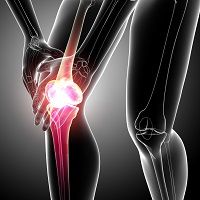Article
Exercise Beneficial for Pain Reduction in Knee Osteoarthritis
Author(s):
Study results suggest that maintaining proper weight is not just associated with better disease outcomes but also less pain in patients with knee osteoarthritis.

A Canadian study in Pain Research & Management suggests that for knee osteoarthritis (OA) patients, maintaining proper weight is not just associated with better disease outcomes, but also less pain.
Clinical evidence around the age-old question of whether pain patients should be encouraged to exercise has generally come down on the side of the affirmative‑‑of course depending on the type, area, and severity of the pain experienced. It’s a particularly difficult question in OA, for which pain is not always directly correlated with disease severity. Earlier studies have shown that many nonclinical factors contribute to the experience of OA pain—including psychological and physical health, coping behaviors, and social support.
“The most important modifiable risk factor for knee OA is body weight,” the researchers note. “The excessive loads to the knee, inflammation, and associated inactivity among overweight and obese individuals contributes to knee OA pathogenesis and pain.” Yet, most clinicians and patients pursue pharmacological interventions. The role of exercise is generally acknowledged but not well understood.
In the current study, details of OA characteristics and lifestyle factors were collected from interviews with healthy adults with knee OA (n=197). The Western Ontario and McMaster Universities Osteoarthritis Index was used to assess pain. Factors were summarized across three pain score categories. Multiple linear regression analysis using a stepwise selection procedure was used to examine associations between lifestyle factors and pain.
The study showed that pain was significantly higher with the use of OA medications and higher body mass index category, and significantly lower with the use of supplements and meeting physical activity guidelines (≥150 min/week). Stiffness and physical function scores, bilateral knee OA, body mass index category and OA medication use were significantly higher with increasing pain, whereas self-reported health, servings of fruit, supplement use and meeting physical activity guidelines significantly lower.
The results were similar across age, gender, disease comorbidity, smoking status, and use of over-the-counter pain medications.
“In exercise intervention studies, pain decreases with increased activity levels,” the researchers stated. “However, the monitored exercise regimes used in interventions are not replicated in everyday life….It is also possible that individuals with severe pain in the present study did not feel that they could exercise. However, there are reports of individuals with knee OA walking at a high cadence or velocity with low pain levels…Interestingly, all-cause mortality is higher in adults with OA versus without OA and the increased risk for death is predicted by walking disability, highlighting the importance of physical activity and exercise in this population.”
The researchers would like to see further research on the effectiveness of modifiable lifestyle factors, including weight, use of supplements, and fruit intake, among others.


